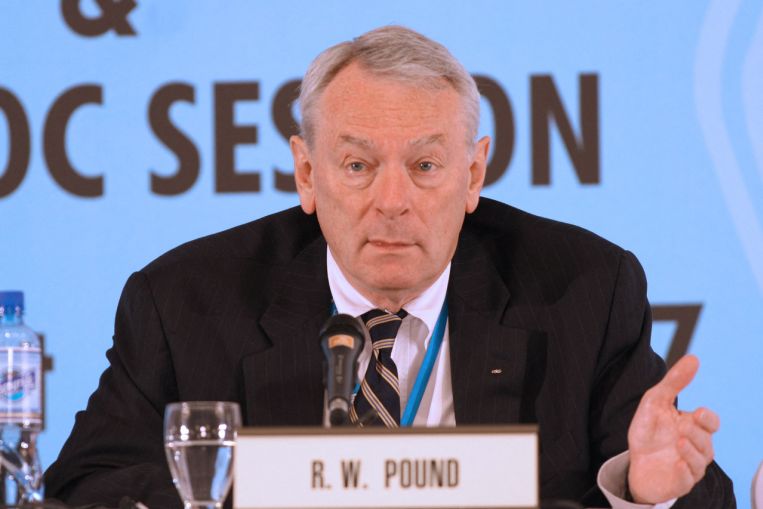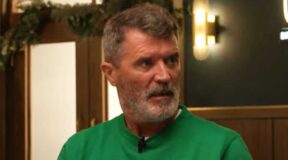OTTAWA (AFP) – The International Olympic Committee’s longest serving member assured on Thursday (May 20) that the Tokyo Games are “a go”, as IOC officials huddled with local organisers for online talks.
“There’s nothing to indicate that there’s an elephant in the room that we don’t know about,” Richard Pound told AFP two months before the scheduled start of the Games, which have already been pushed from last year due to the pandemic.
Japanese public sentiment is against the mega event, with polls showing a majority in the country want the Olympics delayed further or altogether cancelled.
“Based on everything we know today it’s a go,” Pound said, adding, “I have my ticket.”
“If the host country (Japan) doesn’t want to host, it doesn’t host,” he said, but added that the IOC ultimately retains “the power to cancel the Games if the conditions are dangerous enough”.
Organisers have outlined extensive virus countermeasures to keep the Olympics safe, including barring overseas fans for the first time ever.
But with Japan battling a fourth wave of infections, doctors’ associations have warned that the healthcare system is already overstretched and the Games could add further stress.
As currently planned, there will be less “celebratory stuff, the streets (won’t be) filled with athletes and spectators and so on. The excitement of being in an Olympic city, that’s going to be a lot more subdued”, Pound said.
Athletes will be tested for Covid-19 at the Tokyo airport upon arrival and then effectively isolated at the Olympic village. After competing, they will be asked to quickly leave the country.
“It’s not going to have all the frills and bells and whistles that we’ve come to expect,” he said. “That kind of ambience is not going to be there.”
But “there will be Olympic competitions and the athletes from all 206 countries are expected to participate.”
Pound, a former Canadian swimming champion who later became the first president of the World Anti-Doping Agency, acknowledged the push-back in Japan against the Games, but downplayed its likelihood of forcing a cancellation.
He drew parallels with the 1984 Games in Los Angeles in which there were concerns “about how many Olympic athletes were going to die because of the smog”, and a Zika virus outbreak prior to the 2016 Games in Rio de Janeiro.
“It was the wrong season and the wrong area (for Zika) but people still thought that Zika would decimate the crowds and the athletes,” he said. In the end, no foreign visitors to the Rio Games contracted the virus.
“So you’ve got to expect some of that stuff and just persist through it,” he said, adding that “communications could be better to try and reassure the public at large.”
“At the moment, the big question is will there be spectators and if so, what percentage of the venues will be available.”
He said the IOC has agreed, in addition to banning foreign spectators, to halving the number of people with Olympic responsibilities entering Japan from overseas for the Olympics, which take place from July 23 to Aug 8.
If the Games are cancelled at the last minute, Pound said, “certainly there would be massive disappointment on the part of the athletes, (and) around the world that this opportunity could not be seized upon”.
The IOC, sponsors, broadcasters and “almost anybody connected with the risks” of putting on the world’s premier sporting event, he said, are insured for that eventuality.
Financial losses resulting from a cancellation “would be significant”. But it “would not put the entire international sports system or the Olympic movement in dire straits”, Pound assured. “We’d have to tighten the belts a little bit of course but it certainly would not cause financial ruin.”
It would, however, be regrettable for competitors as “three out of four Olympic athletes get one kick at the can”, he said.
The Games have only been cancelled on three occasions, because of World War I in 1916 and due to World War II in 1940 and 1946.
The pandemic has also prompted the Canadian swimming team to pull out of a pre-Olympic training camp in Japan.
Plans for some 50 training camps in Japan have been scrapped, the majority due to concerns over the pandemic.
The Canadian team of about 60 swimmers and coaches were originally scheduled to stay in the city of Toyota, about 250km west of Tokyo, from July 9 to July 30, Kyodo reported on Friday.
“We will no longer be doing our holding camp at Toyota City and Chukyo University and will be going straight into the Olympic Games village.”
Also on Thursday, a sudden surge of coronavirus cases has prompted officials to move an Olympic baseball qualifier from Taichung in Taiwan next month to Mexico.
“The decision was forced by new restrictions the local authorities imposed in Taiwan due to a surge in Covid-19 cases,” the World Baseball Softball Confederation WBSC said in a statement on Thursday, specifically citing the limits to foreigners arriving.
The statement added that exact dates and venues for the Mexico tournament were still to be confirmed.
Mexico’s baseball team have already qualified for the Olympics.
Taiwan, Australia and the Netherlands have earned the right to participate in the upcoming qualifier in Mexico alongside two other teams from an Americas regional qualifier taking place later this month.
Mexico’s coronavirus situation is far worse than Taiwan’s. It has recorded about 220,000 deaths and is still counting 2,000 new cases each day.
In contrast Taiwan has had just 2,800 cases and 15 deaths.
Join ST’s Telegram channel here and get the latest breaking news delivered to you.
Source: Read Full Article






